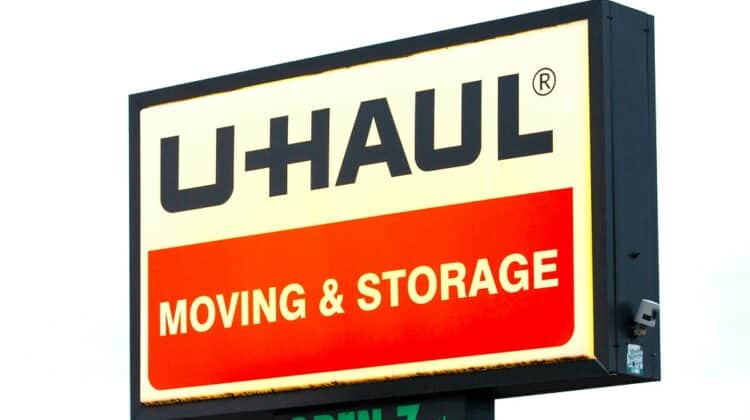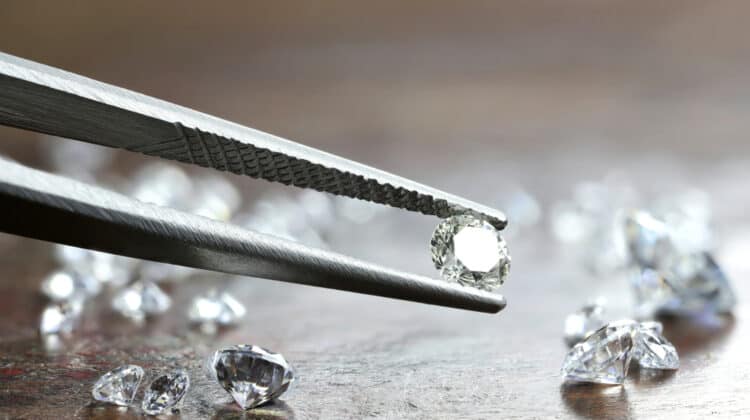
One of the most debated topics recently has been whether a president can face arrest and prosecution or not.
In most cases, this is a question that lawmakers, prosecutors, and American citizens don’t have to worry about.
They elect presidents feeling safe in the knowledge that they are upstanding citizens who will operate within the law.
However, that isn’t always the case.
While former president Donald Trump is the current subject of the topic of arresting presidents, he isn’t the first.
Determining whether law enforcement can arrest a president requires a look back to the presidency of Richard Nixon for the answer.
Here’s what you need to know about whether law enforcement can arrest a president or not.
Can The President Be Arrested?

Yes, the president can face arrest and prosecution because no one is above the law, but the process of doing so is very difficult.
It all has to do with a memo made by an investigator looking into Nixon following the Watergate Scandal.
In 1973, Democrats discovered that President Richard Nixon was spying on them.
During the investigation, the Justice Department determined that a sitting president could not face indictment.
The Justices stated, specifically, that a sitting president could not face indictment.
The belief behind the memo was that the President would be unable to perform the executive functions of office while under indictment.
The memo faced another test in 1998 when Ken Starr was investigating President Bill Clinton for sexual harassment.
The clear difference between Starr and the Department of Justice is that Starr was an independent investigator.
He was not tied to the Department of Justice, and thus, the memo did not apply to him.
Starr would eventually go on to decide that he would not indict Clinton.
Congress, however, believes that he had the power to do so if he had chosen to indict the president.
That’s simply based on the fact that the DOJ memo did not apply to him.
In this instance, it indicates that someone who is not from the DOJ might have the power to indict the president which could then lead to an arrest and prosecution.
In most cases, the DOJ takes the stance that the president first needs to go through impeachment.
Once they’re removed from office, then they can face an indictment, and law enforcement can arrest them.
Can A President Face Arrest For A Civil Crime?

Another interesting aspect of arresting the president has to do with a civil crime.
There’s a clear distinction between a civil and criminal indictment when it comes to arresting the president.
In the court case, Clinton vs. Jones, the trial went to court.
This indicates that a sitting president can face indictment for a civil crime.
Some might argue that the DOJ memo does not cover the case of a civil crime but rather a criminal offense.
That’s because Nixon was committing a criminal offense when the DOJ came out with the memo.
It’s also important to consider an expansion on the original memo which came out in 2000.
In this memo, the DOJ expanded on why it couldn’t indict a sitting president.
It stated that doing so would disrupt the separation of powers.
Without a head of the executive branch, all the power would then go to the judicial branch.
This violates the very basis of the Constitution which carefully lays out the separation of power between the executive, legislative, and judicial branches of government.
Again, this memo describes criminal offenses, specifically, or becomes relevant during a criminal case and not a civil one.
Because of that, lawmakers argue that a sitting president can face indictment and arrest over a civil case.
Is The Department Of Justice’s 1973 Memo A Policy Or Law?

For American citizens, it’s important to understand whether the memo that the DOJ made concerning President Nixon is a policy or law.
There are clear distinctions between the two and consequences for each.
A policy acts as a guideline for how the government should act or what it should do in a specific situation.
The policy usually indicates the principles that are also needed to achieve the goal.
Policies are often just documents, but they can turn into laws.
The DOJ’s 1973 Memo is a policy.
That’s because it never went through the various branches of government to become law.
That means it’s more like a guideline that the DOJ and anyone associated with the DOJ follows.
A law, on the other hand, is something binding and carries consequences if not followed.
It’s a set of standards or procedures with the expectation that society will follow them.
If it is not followed, then the individual faces consequences.
There are different types of laws that form the basis of society and the social contract everyone accepts to take part in society.
Those laws usually fall into the following categories:
- Civil
- Criminal
- Trade
- International
Laws typically aim to implement a scale of justice within society.
They also have to go through a rigorous process before becoming law.
The proposed law passes through several stages before finally becoming an official, enforceable law.
Since the DOJ’s memo is a policy and not law, it is not set in stone.
That means that if the government finds itself needing to prosecute a sitting president civilly or criminally, then the matter will likely go to the Supreme Court.
The Supreme Court will then look at the Constitution to determine the fate of the president from there.
What’s The Best Process For A President To Face Arrest?

Most lawmakers and prosecutors agree that there is a clear path that they can use to arrest a sitting president.
The first step is to impeach them.
To impeach a president, Congress has to vote and agree on it.
Here’s what you need to know about impeachment.
What Is Impeachment?

Impeachment refers to the process in which Congress can remove a sitting president from office through a vote.
In particular, Congress can choose to vote on impeaching a president if they believe the president committed a crime that was treason, a high crime, misdemeanor, or bribery.
There’s some matter of debate over what high crimes and misdemeanors cover.
Alexander Hamilton makes this a bit clearer when he discussed impeachable crimes in one of his papers.
He described a situation in which a president used their powers or public office to injure society or abuse their powers in which a way that injures society.
It’s a violation of public trust.
This sort of language comes from Parliament in England.
Those in Parliament often used this clause to remove crown officials from the government.
They abused their power and harmed society in the process.
The Founding Fathers put this clause into the Constitution to ensure that if a sitting president performed such acts to abuse their power, then Congress could remove them.
This would also ensure that the role of the president could never become one of a monarchy.
What Is The Impeachment Process?

Once members of Congress decide to impeach the president, it follows a specific process.
The process of impeachment can start in a few different ways.
Most recently, the House of Representatives forms a few committees to investigate the matter.
This was the case in the Clinton Impeachment trial.
The House Judiciary Committee investigated the issue at hand.
They then recommended the articles of impeachment for the rest of the House to move forward with impeachment.
Another process that the House of Representatives could use is to create a special panel that performs the proceedings for them.
A third option is that a simple floor vote occurs to vote for or against the impeachment of the president.
This is one of the reasons having a majority in the House of Representatives can be crucial.
It’s a way that political parties can protect the president if they come from their own political party.
Of course, ideally, both political parties would be able to set aside their platforms to come together to determine whether the president committed something impeachable or not.
Then vote for or against impeachment as a result of those findings.
Since those days are long gone, however, the House of Representatives tends to line up their votes according to their political backgrounds.
Voting for impeachment is only the first step towards removing a president from office.
What Happens After The House Votes To Impeach A President?

When the House of Representatives votes to impeach a president, the president isn’t removed automatically.
That’s only the first step of the process.
This essentially tells the American public and the rest of the branches of government that the House of Representatives believes that it has found credible evidence that the president committed some form of crime.
After the House votes to impeach the president, the matter falls to the Senate.
An impeachment is similar to an indictment.
It’s up to the Senate to then convict the president or not.
In all of American history, the Senate has never convicted a president.
The one time they might have done so was during the Nixon Impeachment trial, but Nixon resigned and didn’t give them the chance to move forward with it.
The act of convicting the president in the Senate is similar to that of the House.
Senators will investigate the matter, debate it, and then hold a vote.
If the majority votes to convict the president, then the president is no longer able to hold office.
From there, law enforcement can take over the matter to prosecute the president based on its own investigation.
If the majority doesn’t vote to convict the president, then the president remains in office.
This is what has happened in every instance in which a president received an impeachment in the past.
The Senate has always voted to acquit the president.
This is another instance in which party politics come into play.
If one party controls the House and another the Senate, this allows one of those bodies to protect the president.
In a way, this helps balance power since it ensures that a political party can’t easily impeach someone in power without significant cause.
However, it also has its consequences.
If the party is loyal to its president based on fanaticism, then they may simply vote to keep the president in power because, otherwise, their party may lose favor with the general public.
Members of Congress may choose to vote in line with their party rather than for the good of the American people—those they represent.
As with all American politics, the various checks and balances can help stop illegal political maneuvering that might injure American society, but it can also make it difficult to remove an individual who has entrenched themselves within a party.
Who Has Received An Impeachment?

The House has voted to impeach a few presidents throughout the years.
The first was Andrew Johnson.
Johnson ascended to the presidency after Abraham Lincoln’s assassination.
Johnson was pro-Union, but he still held some racist views and wanted to be lenient during the Reconstruction process of bringing the Confederate states back into the Union.
The fact that he was from Tennessee, one of the states that seceded from the Union, may have played a role.
He often vetoed bills from Congress that he believed were too harsh on the Southern states.
One of those bills was a law that would give displaced southerners, including freed slaves, access to shelter, land, food, and water.
The final act he performed, which caused the House to vote for impeachment, was to replace a Lincoln-appointed Secretary of War with his own appointee.
The House received a two-thirds vote to impeach him.
The matter then went to the Senate where Johnson was acquitted with one vote not to convict him disrupting the majority.
Later, the Supreme Court would rule that the House had unconstitutionally chosen to impeach Johnson.
The second president to face impeachment was Richard Nixon.
However, before the House could get that far, Nixon resigned from office.
The third president to be impeached was Bill Clinton.
Clinton faced impeachment for committing perjury.
He had lied to investigators when he told them that he did not have sexual relations with Monica Lewinsky.
While the House voted to impeach him, he was eventually acquitted by the Senate.
The Senate stated that while Clinton had indeed lied, the crime wasn’t important enough or high enough to remove the president from office.
The final president to receive impeachment is Donald Trump.
He holds the record for being the president with the most impeachments to his name.
The House voted to impeach Trump for two crimes.
The first charge was an abuse of power and the second was obstruction of justice.
Ultimately, the Senate voted not to convict Trump, although it was a narrow majority.
How Does The Impeachment Process Help To Arrest A President?

This all comes down to how impeachment can help arrest a president.
Because of the DOJ memo created in the 1970s, many prosecutors, specifically from the DOJ, feel powerless when it comes to arresting a president.
They believe that, for a president to face criminal charges, they need to be out of office first.
Not only does this then bypass the DOJ memo, but it also ensures that the executive branch is still functional in the form of the ascendancy of the vice president to president.
After the House votes to impeach the president, the Senate can then convict them.
If the Senate convicts the president, then they must leave office.
At this point, the vice president becomes the new president, but they might face impeachment charges of their own if Congress believes they colluded with the former president.
Once the former president leaves office, they are a civilian once more.
This makes it a lot easier for prosecutors to then arrest them and bring them to trial.
Thanks to the existence of that DOJ policy, most prosecutors prefer to wait until a president becomes a civilian before arresting them.
A president can face arrest, but it’s usually only when they’re back in civilian life.
Have Any Presidents Faced Arrest After Office?

Yes, one president has faced arrest.
He even faced arrest during his time as president.
President Ulysses S. Grant faced arrest for speeding when he was going too fast with his horse and buggy.
Grant was a notorious speeder.
Aside from him, there has never been an arrest of a former president.
There likely would have been in the Nixon case, but President Ford formally pardoned Nixon from his crime.
It prevented prosecutors from arresting and convicting the former president for the events of the Watergate Scandal.
Former President Donald Trump faces several criminal charges, but the investigation is still ongoing.
Conclusion
Due to a policy created by the Department of Justice during the Watergate Scandal, prosecutors have a difficult time arresting the president.
That said, the president is not above the law, and the Supreme Court would ultimately need to decide what to do about the problem.
In most cases, prosecutors rely on Congress to first impeach and convict a president to remove them from office before arresting them.
NEXT: What Bank Is Open On Saturday? (Updated 2023)























What would happen if the president got arrested
What would happen if the president got arrested